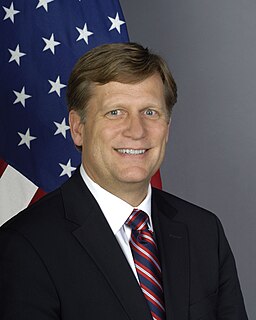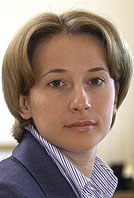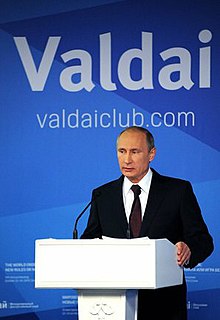2010 Yaroslavl Global Policy Forum | |
| Formation | 2009 |
|---|---|
| Type | Forum |
| Headquarters | Yaroslavl |
Yaroslavl Global Policy Forum was a series of high-level conferences organized in Yaroslavl, Russia, during the term of Dmitry Medvedev as President of the Russian Federation. [1] The forum, which targeted foreign experts, was established in 2009 by Medvedev, who determined that Valdai Discussion Club was too closely linked to Vladimir Putin. [2] The Yaroslavl Forum was organized around Medvedev's birthday, which occurred around the same time as Putin's Valdai conference. [3]

Yaroslavl is a city and the administrative center of Yaroslavl Oblast, Russia, located 250 kilometers (160 mi) northeast of Moscow. The historic part of the city, a World Heritage Site, is located at the confluence of the Volga and the Kotorosl Rivers. It is one of the Golden Ring cities, a group of historic cities northeast of Moscow that have played an important role in Russian history. Population: 591,486 (2010 Census); 613,088 (2002 Census); 632,991 (1989 Census).

Russia, officially the Russian Federation, is a transcontinental country in Eastern Europe and North Asia. At 17,125,200 square kilometres (6,612,100 sq mi), Russia is the largest country in the world by area, covering more than one-eighth of the Earth's inhabited land area, and the ninth most populous, with about 146.77 million people as of 2019, excluding Crimea. About 77% of the population live in the western, European part of the country. Russia's capital, Moscow, is the largest metropolitan area in Europe proper and one of the largest cities in the world; other major cities include Saint Petersburg, Novosibirsk, Yekaterinburg and Nizhny Novgorod. Extending across the entirety of Northern Asia and much of Eastern Europe, Russia spans eleven time zones and incorporates a wide range of environments and landforms. From northwest to southeast, Russia shares land borders with Norway, Finland, Estonia, Latvia, Lithuania and Poland, Belarus, Ukraine, Georgia, Azerbaijan, Kazakhstan, China, Mongolia and North Korea. It shares maritime borders with Japan by the Sea of Okhotsk and the U.S. state of Alaska across the Bering Strait. However, Russia recognises two more countries that border it, Abkhazia and South Ossetia, both of which are internationally recognized as parts of Georgia.

Dmitry Anatolyevich Medvedev is a Russian politician who has served as the Prime Minister of Russia since 2012. From 2008 to 2012, Medvedev served as the third President of Russia.
Medvedev gave significant speeches at the forum, including a speech at the September 2010 forum (entitled "The Modern State: Standards of Democracy and Criteria of Efficiency"), [4] in which Medvedev "told a large audience of academics, politicians, and economists ... that parliamentary democracy would provide a 'catastrophe' for Russia" by leading to social upheaval and turmoil. [5] Among the notable persons who attended the forums were Italian prime minister Silvio Berlusconi and American Nobel laureate economic Paul Krugman, [1] and Michael McFaul. [6] The conferences were "largely presented as the Russian equivalent of the annual World Economic Forum in Davos." [1] However, as Medvedev's influence waned, the Global Policy Forum "soon exhausted its potential ... and became nearly forgotten." [1]

Silvio Berlusconi is an Italian media tycoon and politician who has served as Prime Minister of Italy in four governments.

Paul Robin Krugman is an American economist who is currently Distinguished Professor of Economics at the Graduate Center of the City University of New York, and a columnist for The New York Times. In 2008, Krugman was awarded the Nobel Memorial Prize in Economic Sciences for his contributions to New Trade Theory and New Economic Geography. The Prize Committee cited Krugman's work explaining the patterns of international trade and the geographic distribution of economic activity, by examining the effects of economies of scale and of consumer preferences for diverse goods and services.

Michael Anthony McFaul is an American academic and professor of political science who served as the United States Ambassador to Russia from 2012 to 2014. Prior to his nomination to the ambassadorial position, McFaul worked for the U.S. National Security Council as Special Assistant to the President and senior director of Russian and Eurasian affairs. In that capacity he was the architect of U.S. President Barack Obama's policy on Russia.















